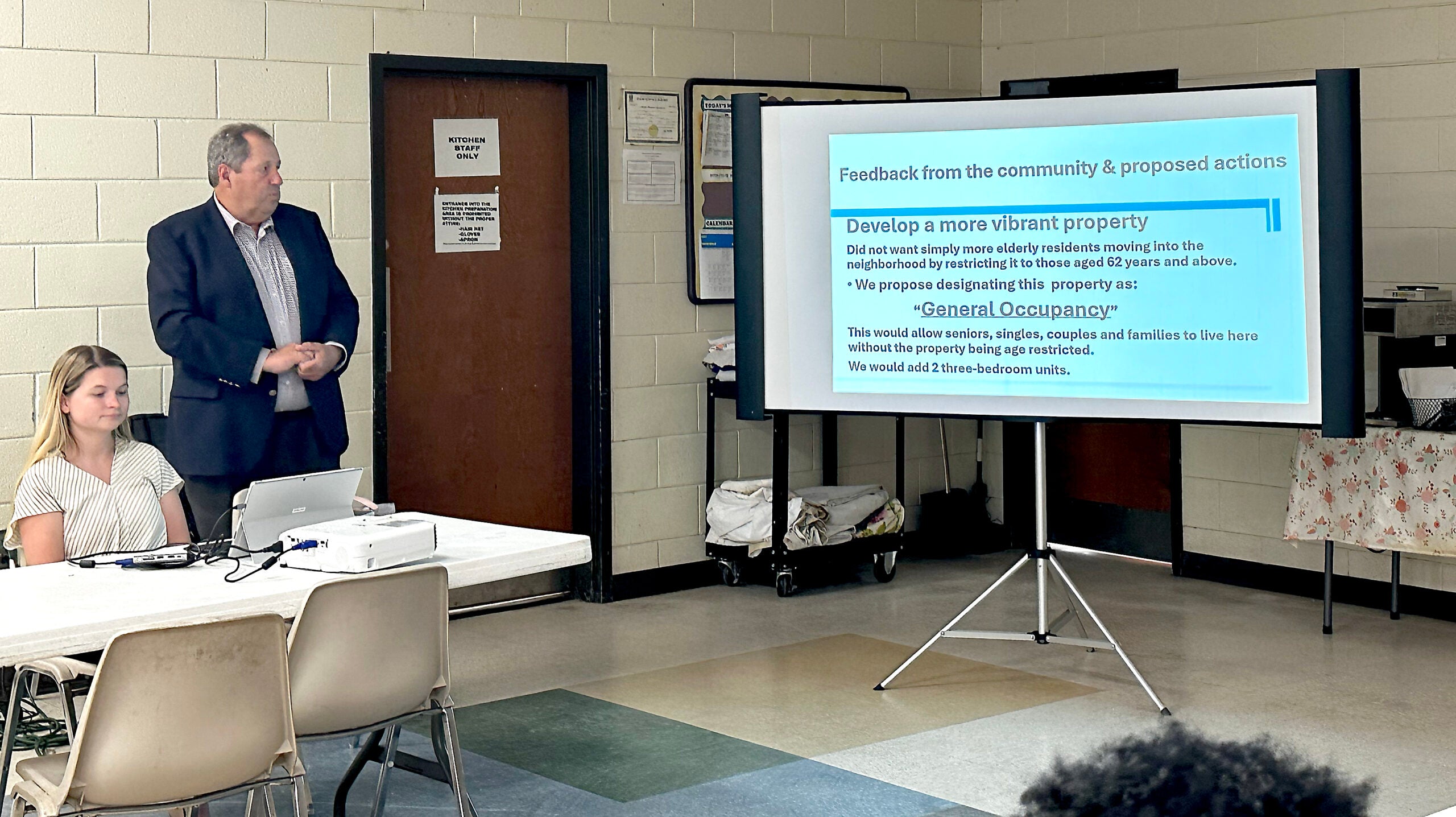Facing a Monday deadline to give their approval, residents of Augusta’s Sand Hills community raised questions Wednesday about plans to build an apartment complex connected to the former Weed School.
The Augusta Commission purchased the historic school from a private owner for $1.3 million, far below its appraised value, in 2023. Plans developed by the city Housing and Community Development department have been to construct housing at the site.
As of Wednesday, however, plans released earlier this year had changed. Instead of approximately 48 units of housing for seniors, the plan is now for the apartments to be “general occupancy,” said Denis Blackburne, principal with Woda Cooper, the developer hired by the city.
Blackburne said the shift from 62 and up to all ages came from community feedback at an earlier meeting.
The units will be split between the former school, which will be preserved and converted to apartments, and a new building, planned as three stories tall, behind the school, he said.
In addition, developers will build a 1,300-square-foot community space, he said.
Other preferences the community expressed at earlier meetings were to not use the “Weed” name and to skip the pickleball courts, according to Blackburne. They came up with a new name, Sand Hills Estates, he said.
To get an application in for low-income housing tax credits, which will cover the bulk of the $17 million project, the commission needs to approve a $960,000 loan to Woda Cooper on Tuesday, said Commissioner Jordan Johnson, who represents the area.
Johnson asked the residents to attend the meeting when the commission votes.
The application needs to specify whether the development is general occupancy or seniors, Blackburne said, as well as the number of units and the breakdown of income brackets allowed to live there.
The units will include four for single residents earning 30% of the area median income, or $16,579, according to his presentation. Nine will go to those earning 50% of the median and 25 will go to those earning 60% of the median income.
The project will include numerous amenities and features that preserve the area’s history, but those can be decided later, he said.
Blackburne’s presentation said residents needed to approve the plan “or wait for the city to get back to you with another potential developer.”
Several of about 20 residents of Sand Hills, a historically Black community sandwiched between Summerville and Augusta Country Club, expressed unfamiliarity and reservations about the plan at the meeting Wednesday.
Helen Griffin asked if those present remembered when the nearby Bon Air was intended for seniors. Today, it’s Section 8 housing for all ages.
The Weed proposal looks like “an ultra-modern building in the heart of a historic place,” Griffin said.
Resident Sandra Moore said the neighborhood wants to survive, not to gain a high-rise apartment complex. Residents want something that will “allow the older generation to live here peacefully,” she said.
Veronica Bogans also had reservations. “I’m not for this, but it seems like a done deal,” she said.
Johnson said the project was not a done deal. If developers miss the upcoming deadline, Weed School will “stay like it is,” he said.
Others in the group encouraged a “compromise” to move the project forward.
The sole younger voice present, WJBF’s Rickey Jones, said as an Augusta native who grew up nearby and loves seniors, he’d love to live in the development.
Blackburne agreed to provide additional drawings to residents ahead of their having a meeting Monday to decide whether they approve.










